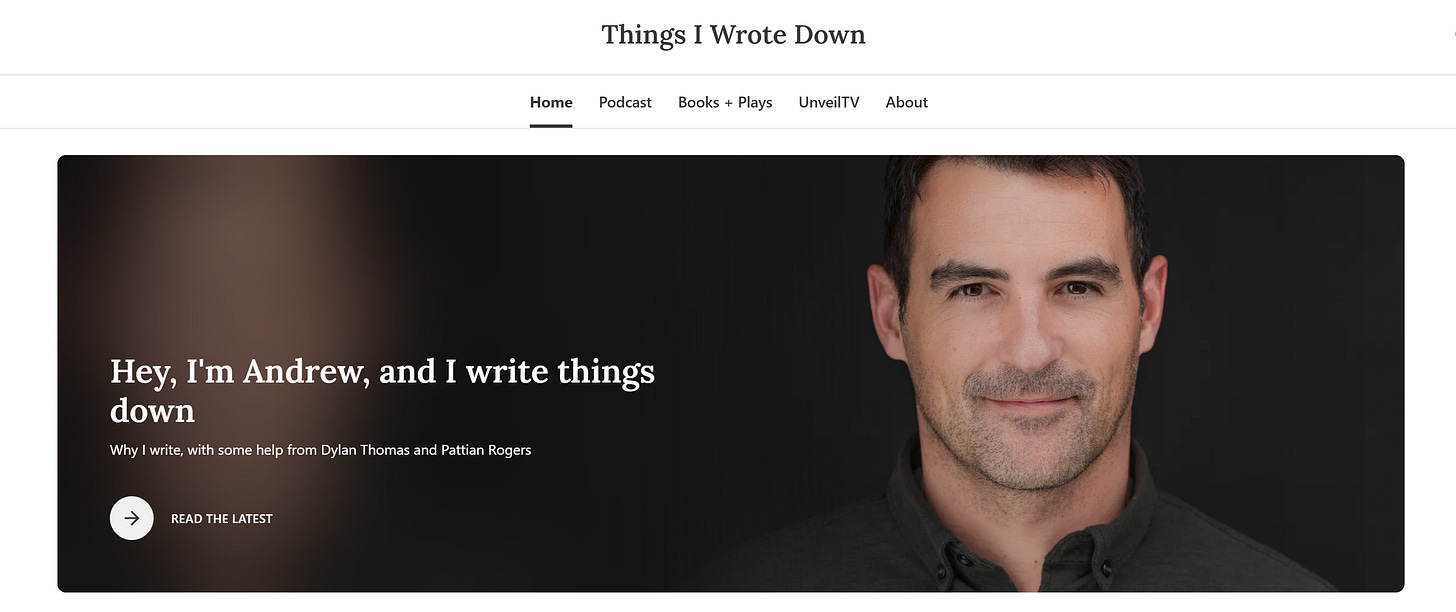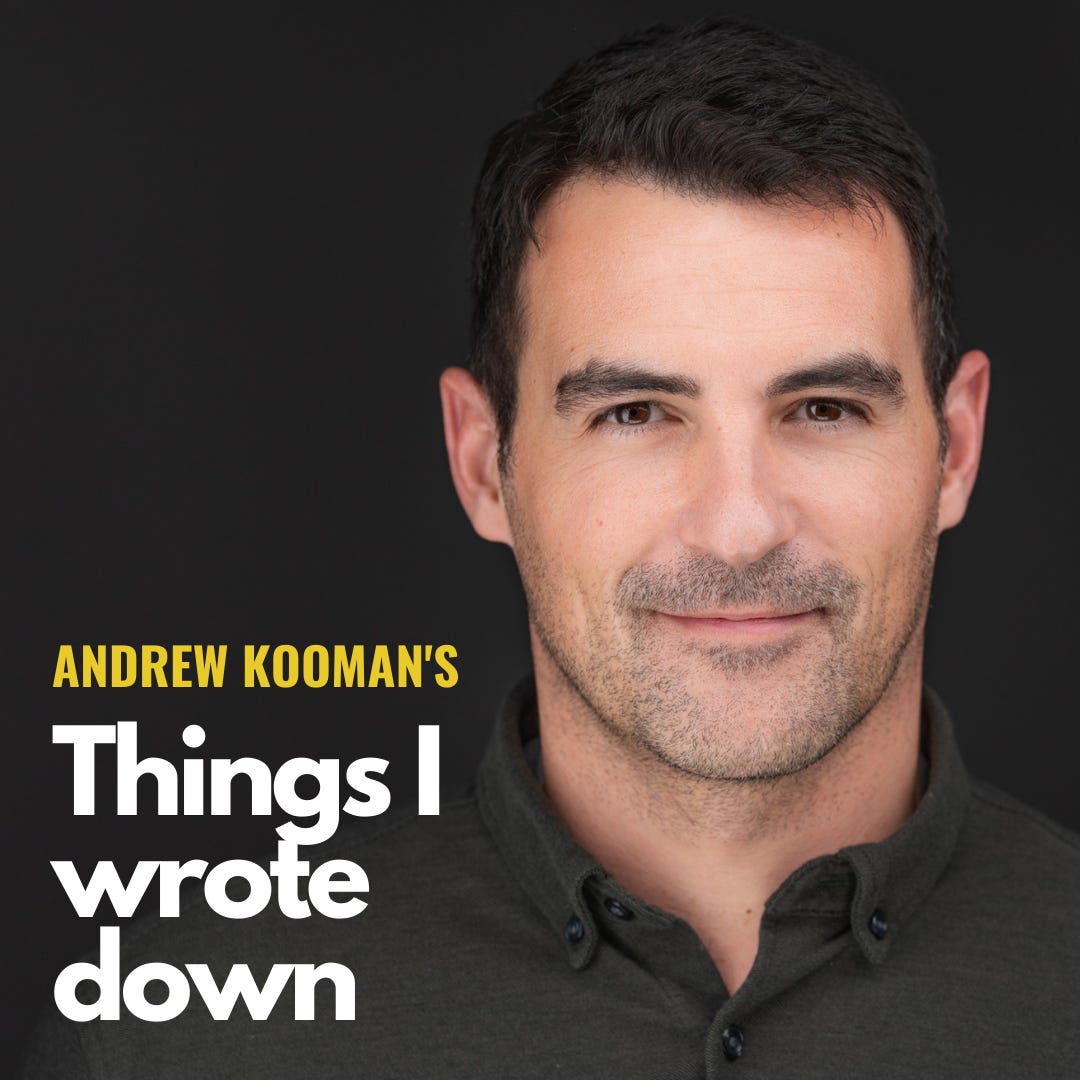I Was Interviewed by Andrew Kooman — You Should Subscribe to His Substack
Why ‘Things I Wrote Down’ is worth your time
Recently, I had the chance to be interviewed for a “10 Questions” segment by Andrew Kooman for his Substack, Things I Wrote Down. We talked about the Church, artificial intelligence, spiritual formation, and how pastors might think wisely about the digital frontiers we’re now navigating.
Andrew is a playwright, screenwriter, and gifted storyteller. His stage plays (She Has A Name, We Are the Body) have received international acclaim, and he’s the co-founder of Unveil. He brings that same depth and thoughtfulness to the conversations he curates on Substack.
Below is a short excerpt from our discussion. I’d encourage you to check it out—and while you're there, take time to explore the wealth of wise, creative, and challenging content Andrew shares regularly. His Substack is well worth your attention
You place your writing on AI and the Church in the “digital frontier” which immediately frames ministry beyond the physical, embodied spaces of traditional ministry. To me that sounds like at least twice the amount of focus or work is required for those involved in making church happen. How do you bring the world of the digital space, where we live all week, and the traditional space of the church together?
You’re hitting on a great question that I feel needs some unpacking. The phrase “digital frontier” is intended to help us recognize that we’re stepping into wholly new territory as the Church. It’s good to keep in view that, optimistically, only around 1.7% of Christian church history has had any kind of access to the Internet, let alone social media, or this new AI wave (which includes large language models, etc.), which currently sits at about 0.125% of our post-resurrection journey as the body of Christ. We’re breaking radically new ground in terms of the tools available to us and the cultural landscape in which we minister.
With that in mind, I think there are a few ways to approach the question:
First, it’s essential to acknowledge that the fabric of our society has shifted so significantly—and in such a short period—that ministry, by necessity, will look somewhat different than it did even a generation ago. That doesn’t mean the Church’s mission has changed, but the environment in which we pursue that mission certainly has. In the same way that the printing press reshaped preaching, or the telephone reshaped pastoral care, so too will digital spaces reshape the way we carry out our calling.
Second, some of this change is simply the outworking of being human. We shape our tools, yes—but our tools also shape us. As people now spend much of their lives online, the digital realm has become a place where formation, conversation, and even relationships are taking root. And so, over time, what we think of as the “traditional” church space will inevitably be touched and informed by digital patterns of life. The bringing together of digital and traditional ministry, then, isn’t about choosing one over the other or doubling our workload—it’s about recognizing that these spaces are already converging in the lives of the people we serve.
Third, as pastors, ministers, and Christians more broadly, our task is to approach these changes with wisdom. That means paying attention to the gifts this moment offers—new ways to connect, teach, reach, and serve—while also remaining clear-eyed about the distortions and distractions digital technology can introduce. Not everything possible is necessarily helpful. But also, not everything new is a threat. The call is for discernment: to engage digital culture in a way that is faithful to Christ, rooted in community, and aligned with the long arc of the Church’s witness.
Click below to keep reading…
“The Church and AI: Seven Guidelines for Ministry on the Digital Frontiers,” is out now! If you’ve read it already, thank you! Feel free to leave a review on Amazon and Goodreads!




